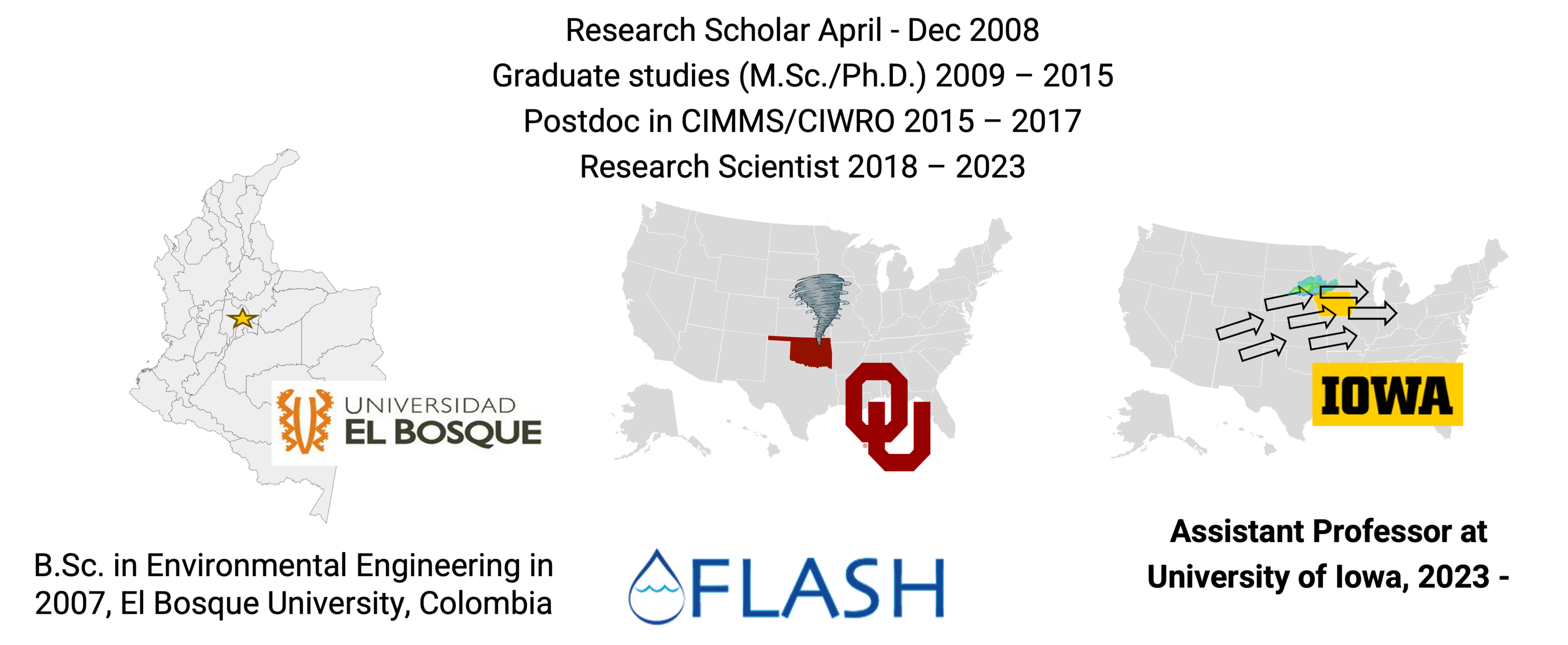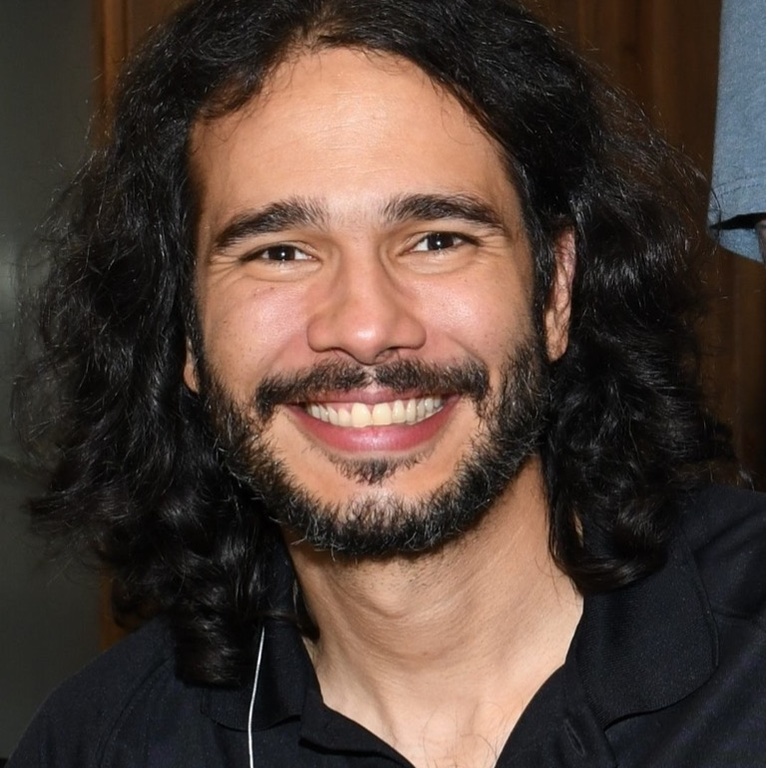Humberto Vergara, PhD

Hailing from Colombia, I began my journey into water-related research during my undergraduate studies in Environmental Engineering at Universidad El Bosque in Bogotá. Early in my career, I was drawn to topics surrounding water quality and treatment, which led me to focus my undergraduate thesis on hydraulic modeling for the design of a drinking water system. This project was developed for the Indigenous community of Nabusimake, located in the Sierra Nevada de Santa Marta, and it initiated my passion for applying engineering solutions to real-world challenges in underserved regions.
I have been a researcher in the field of Applied Hydrology since 2008, working with numerical models used to predict floods and flash floods. The focus of my work has been the development of forecasting tools for early warning systems. One of the highlights of my career is the successful transition of the Flooded Locations And Simulated Hydrographs (FLASH) system to warning operations in the US National Weather Service (NWS), an effort I significantly contributed to while a researcher at The University of Oklahoma's Cooperative Institute for Severe and High-Impact Weather Research and Operations (CIWRO) and NOAA's National Severe Storms Laboratory (NSSL) in Norman, OK.
The main theme of my research at University of Iowa continues to be around early warning of flash floods. Of particular interest is one of the grand challenges in hydrology in the short-range prediction of precipitation, which is of critical importance for extending the lead-times of flash flood forecasts. Likewise, balancing the complexity of numerical representations of physical processes with computational capacity to produce timely hydrologic information that can support decision making.
The research we do at AHWA aims to improve the capacity for early warning of flash floods for Iowa, the United States, and the world.
- Hydrologic Modeling
- Flash Flood Forecasting
- Probabilistic Forecasting
- Data Assimilation
